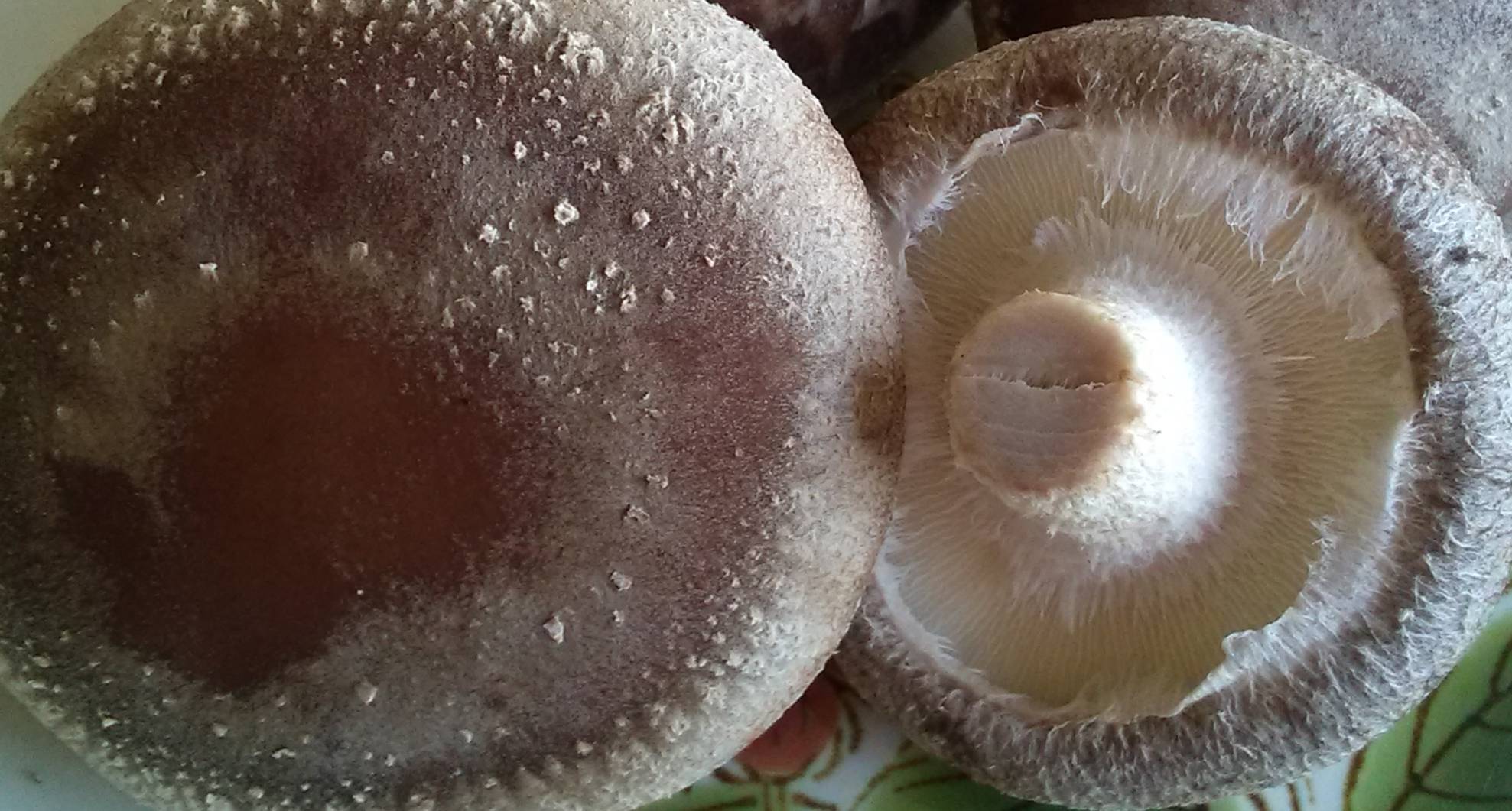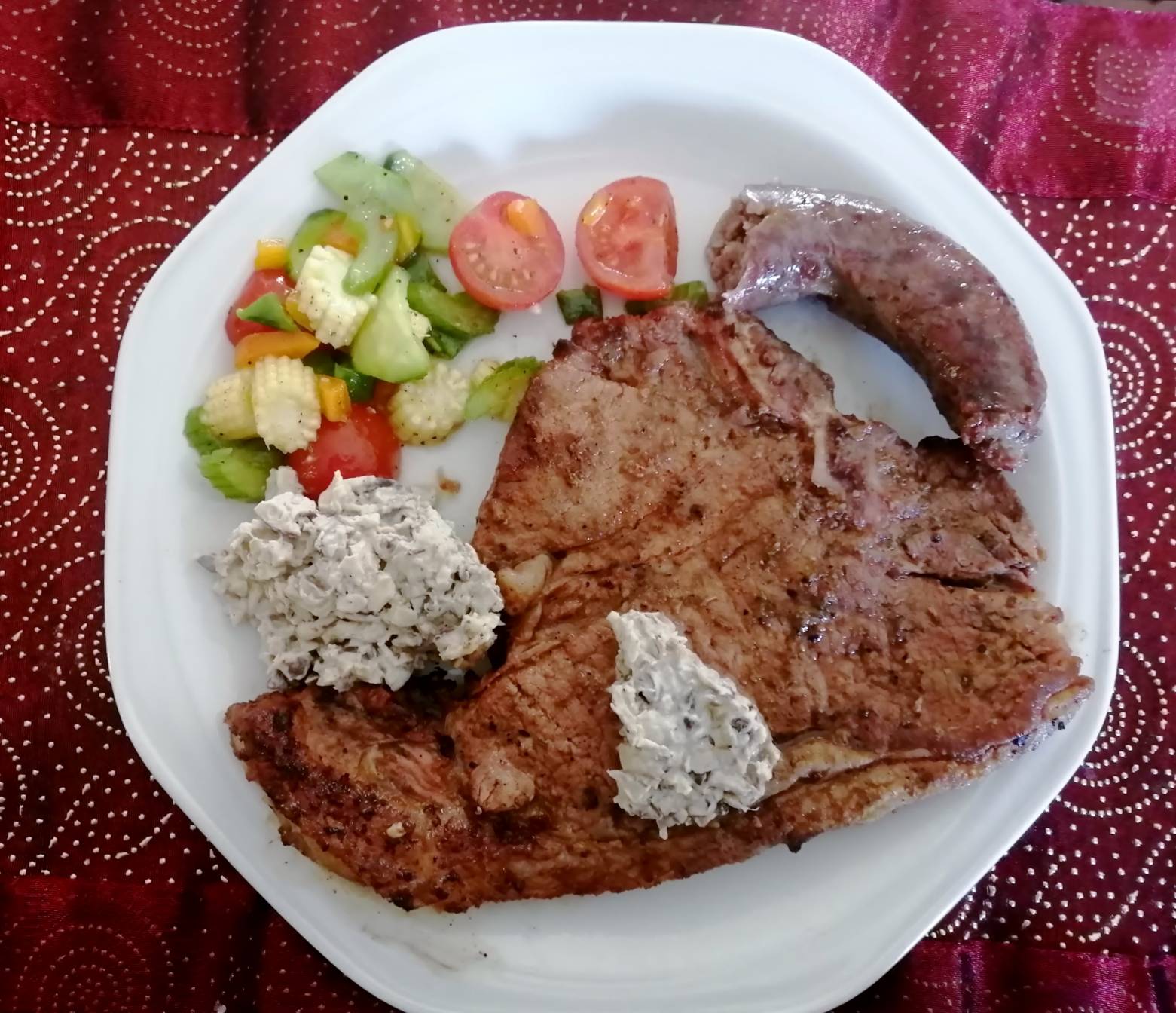Exotic Shiitake Mushrooms
Translated from Japanese, "shii" refers to the tree on which these mushrooms originally grew, while "také" simply means mushroom.
These mushrooms are venerated not just because of their primordial origin, but because of the many health-boosting properties they contain, discovered over centuries of ancient medicine.
Like other mushrooms, these exotic mushrooms are as mysteriously unique as they are delicious. While often thought of as a vegetable and prepared like one, mushrooms are actually a fungus, a special type of living organism that has no roots, leaves, flowers or seeds.
Famous for their rich texture and smoky flavour, they're the second most commonly cultivated edible mushrooms, readily available on market shelves worldwide. Compared with white button mushrooms, shiitakes are purported to have more than 10 times the flavour.
What Are Shiitake Mushrooms?
Are edible mushrooms native to East Asia.
They’re tan to dark brown in colour, and the caps usually grow to between 5 and 10 centimetres
Shiitakes grows naturally on decaying hardwood trees. Mass production is mostly done using sawdust logs which are compressed, steam sterilised, and then spawn inoculation is done in laboratory conditions. The logs are then incubated and cultivated in a controlled environment. This process facilitates a continues production flow irrespective of seasonal changes in a clean environment.
They’re also widely grown. Shiitakes are grown in Japan, USA, Canada, Singapore, China AND South Africa also produces them.
Shiitakes are low in calories. They also offer good amounts of fibre, as well as B vitamins and some minerals.
The nutrients you have in four dried shiitakes (15 grams) ( http://nutritiondata.self.com/facts/vegetables-and-vegetable-products/2487/2):
· Calories: 44.
· Carbs: 11 grams.
· Fibre: 2 grams.
· Protein: 1 gram.
· Riboflavin: 11% of the RDI.
· Niacin: 11% of the RDI.
· Copper: 39% of the RDI.
· Vitamin B5: 33% of the RDI.
· Selenium: 10% of the RDI.
· Manganese: 9% of the RDI.
· Zinc: 8% of the RDI.
· Vitamin B6: 7% of the RDI.
· Folate: 6% of the RDI.
· Vitamin D: 6% of the RDI.
In addition, shiitakes contain many of the same amino acids as meat (http://www.sciencedirect.com/science/article/pii/S0367326X10001358).
They also contain polysaccharides, terpenoids, sterols and lipids linked to immune-boosting, cholesterol-lowering and anti-cancer effects (https://authoritynutrition.com/anti-inflammatory-diet-101/).
All of these properties can differ, depending on how and where the mushrooms are grown, stored and used (http://www.sciencedirect.com/science/article/pii/S0367326X10001358).
Bottom Line: Shiitake mushrooms are low in calories. They also offer many vitamins, minerals and other health-promoting compounds.
How Are They Used?
Dried shiitakes have an umami flavour that’s even more intense than when they’re fresh. Umami means savoury and delicious. It is described as the “fifth taste” along with sweet, sour, bitter and salty.
Shiitake mushrooms have two main uses: as food and as supplements.
Cooking brings out their earthy, smoky, nutty flavour. Try shiitakes sautéed or add to stir-fries, soups or pasta dishes.
Shiitakes as Food
You can cook with both fresh and dried shiitakes, although the dried mushrooms are slightly more popular. Both dried and fresh shiitake mushrooms are used in stir-fries, soups, stews and other dishes.
Mushrooms are porous, which makes them moisture magnets. To avoid having your mushrooms go mushy, use a damp and clean cloth to wipe fresh shiitake instead of running water. If you’re using dried shiitake, rinse with water before you rehydrate.
The porous nature of mushrooms means that they soak up any liquid they’re cooked in, along with any flavor that’s in the liquid. Use this to your advantage by using full-flavored sauteing liquids like stocks or wine-based sauces. The mushroom flavor found in such high quantities in shiitake is provided by a variety of enzymes found in the flesh of the mushroom. When cooked too quickly, these enzymes don’t have enough time to release their maximum flavor, so don’t rush things. Give them more time to cook and your mouth will be rewarded with the most magnificently mushroomy experience possible.
“Vegan Shiitake Bacon is sassy and smoky with a hint of sweet. Perfect for topping soups, salads and sandwiches. Get the recipe and find out why it is still called shiitake bacon, even though people hate that word.. But the reason why this is indeed Shiitake Bacon is because the word "bacon" immediately alerts people to the many ways they can utilize this deliciousness. Use this shiitake bacon it as a salad topper. Stuff it into sandwiches and pitas. Garnish big, creamy soup bowls - like my broccoli potato soup - with it. Or just nibble it straight from the skillet.” http://kblog.lunchboxbunch.com/2016/02/vegan-shiitake-bacon.html
http://www.banting-diet-recipes.co.za/recipe-items/crab-and-mushroom-omelette-low-carb-banting-recipes/
http://www.whfoods.com/genpage.php?dbid=122&tname=foodspice
http://www.mssf.org/cookbook/shiitake.html
http://allrecipes.com/recipes/15179/fruits-and-vegetables/mushrooms/shiitake/
http://www.yummly.uk/recipes/shiitake-mushroom-vegetarian
http://www.blisstree.com/2013/04/22/food/vegetarian-recipes-shiitake-mushrooms/#1
Shiitakes as Supplements
Shiitake mushrooms have long been used in traditional Chinese medicine. They’re also part of the medical traditions of Japan, Korea and Eastern Russia (https://authoritynutrition.com/anti-inflammatory-diet-101/).
In Chinese medicine, shiitakes are thought to boost health and longevity, as well as improve circulation.
Modern studies have found shiitake mushrooms’ bioactive compounds may offer some protection against cancer and inflammation (https://authoritynutrition.com/anti-inflammatory-diet-101/).
Shiitake as immune boost
Scientific study showed that eating whole dried shiitake mushrooms in a daily diet helped reduce the inflammation for 52 male and female study participants were able to show an improved immune function for the people who ate the mushrooms every day. Beta-glucan in mushrooms provides protection against colds, flu and other viruses.
Shiitake, portobello, oyster and reishi mushrooms contain a polysaccharide molecule called lentinan that stimulates production of interferon, which stimulates the immune system. also help to control blood sugar levels and reduce inflammation within the body.

